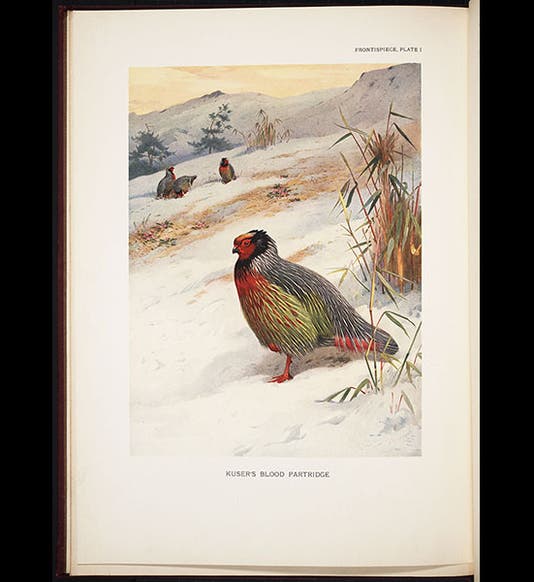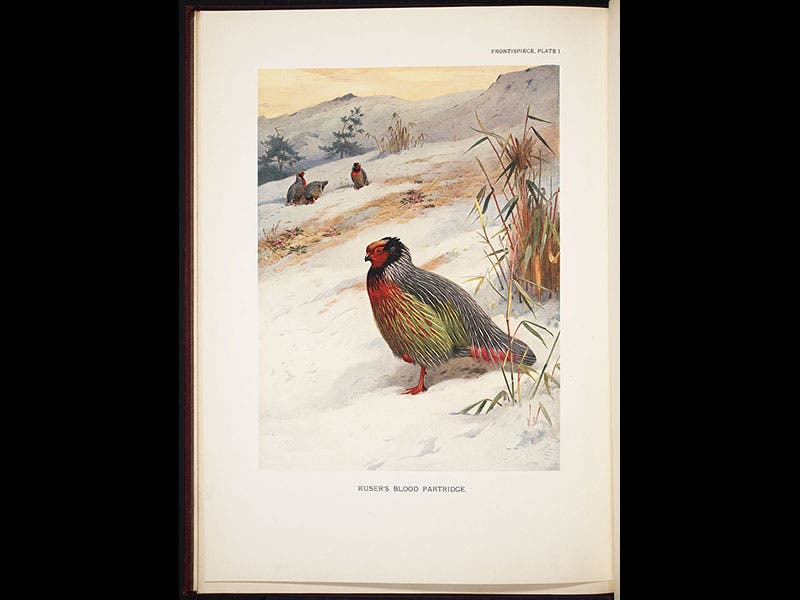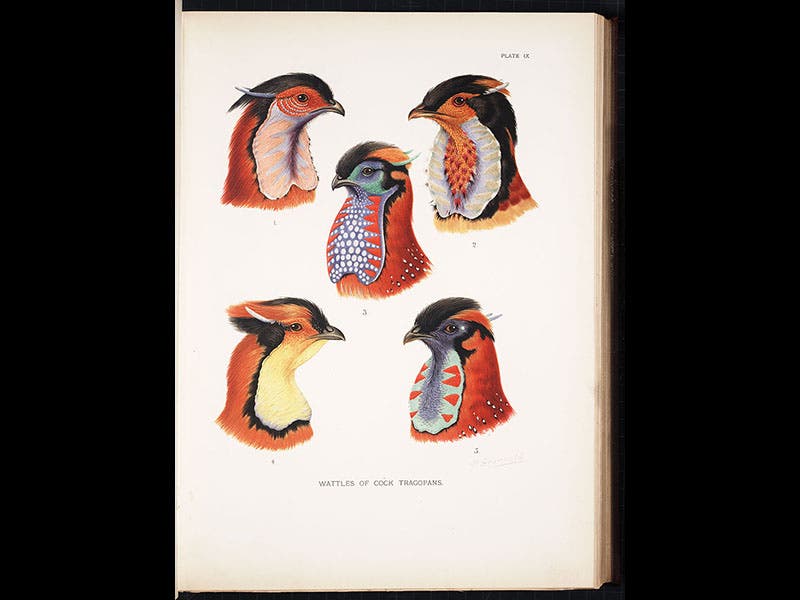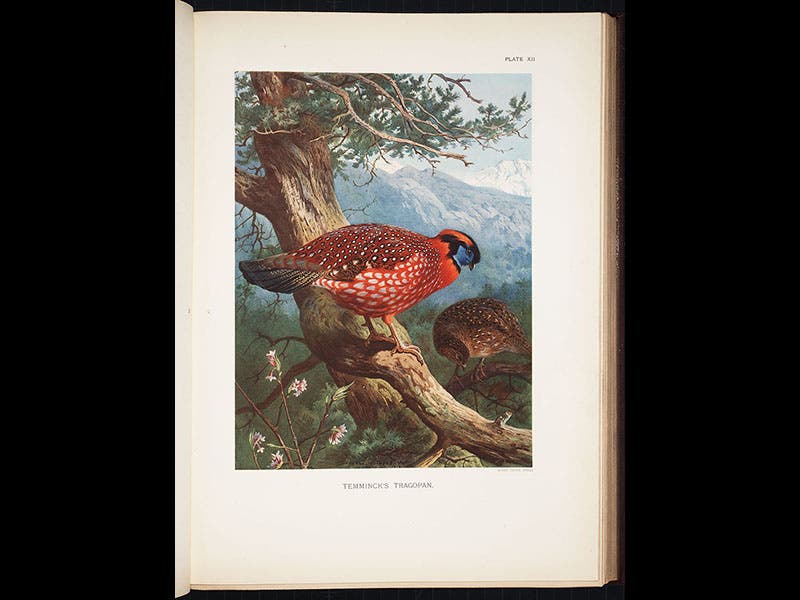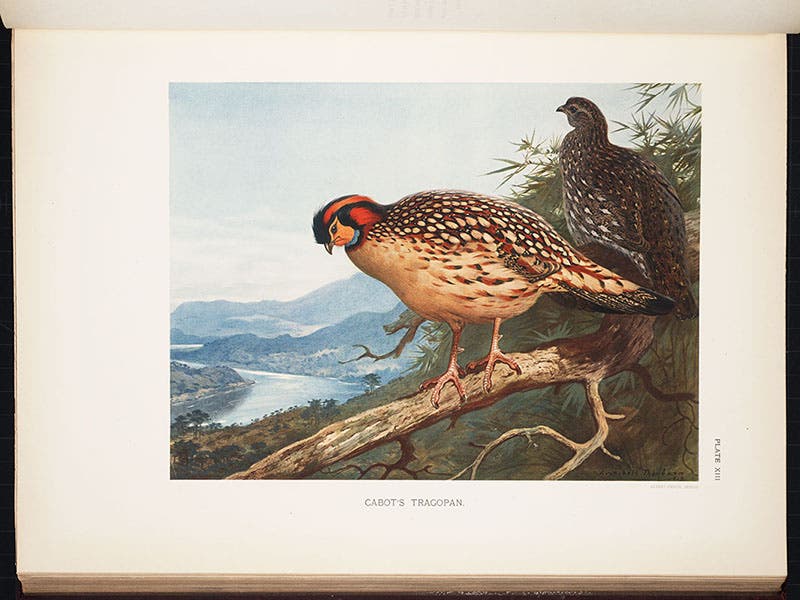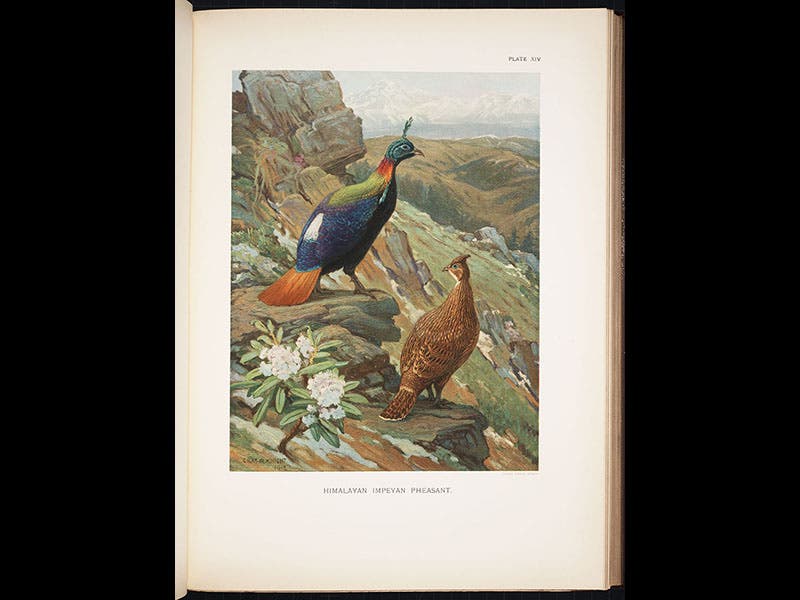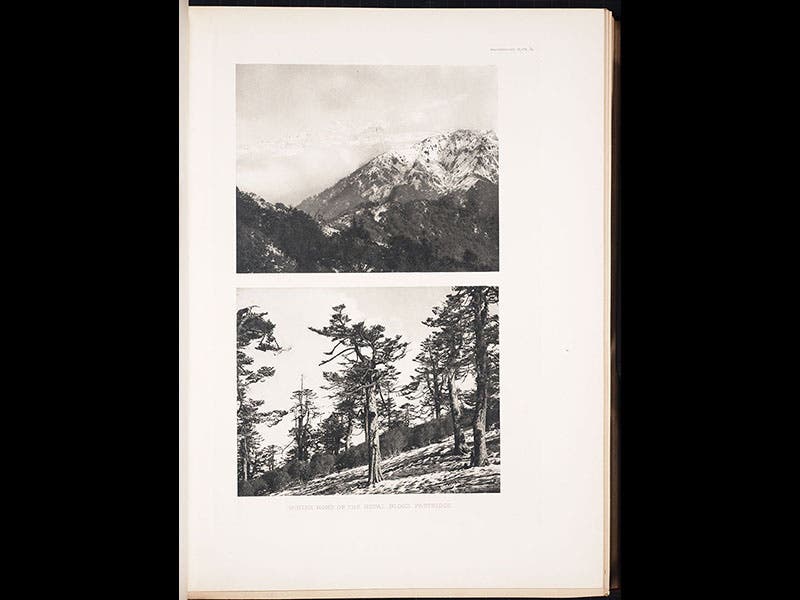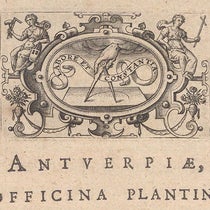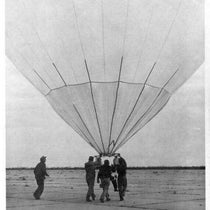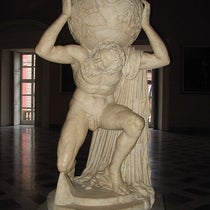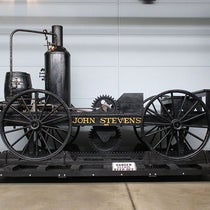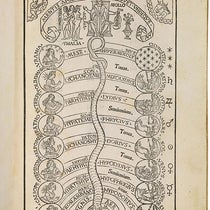Scientist of the Day - William Beebe
William Beebe, an American zoologist and explorer, died June 4, 1962, at age 84. Beebe is best remembered for a series of deep-sea dives that he undertook in the 1930s in his “bathysphere”, and for a resulting popular book, Half Mile Down (1934), which introduced the reading public to the world of the deep sea. Among book collectors, Beebe is better known for a lavish 4-volume publication, A Monograph of the Pheasants (1918-22). This book was the result of a world-wide expedition, financed by philanthropist Anthony Kuser, in which Beebe attempted to study in its native habitat every species of pheasant existing on the planet. The expedition began in 1909 and lasted for nearly 18 months, with Beebe and his artists visiting Sri Lanka, India, Nepal, Java, Borneo, China, and Japan. Publication was delayed by the First World War, but when the set finally appeared, it included paintings from some of the finest bird artists, including Louis Agassiz Fuertes and Charles R. Knight. The images above are all from this set, which we have in the History of Science Collection, and depict, in order: Kuser’s blood partridge; the wattle coloring of five tragopans; Temmick’s tragopan; Cabot’s tragopan, and the Impeyan pheasant. Beebe was insistent that his book show not only each pheasant, but the habitat in which it lived, so for every color plate of a bird, there was a black-and-white photogravure of its environs; the last plate above shows where you must go in Nepal to find the Nepal blood partridge. Dr. William B. Ashworth, Jr., Consultant for the History of Science, Linda Hall Library and Associate Professor, Department of History, University of Missouri-Kansas City. Comments or corrections are welcome; please direct to ashworthw@umkc.edu.

